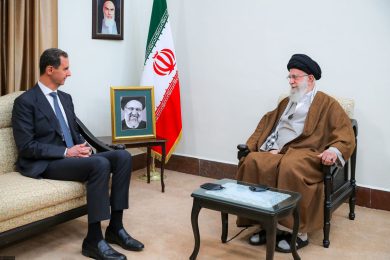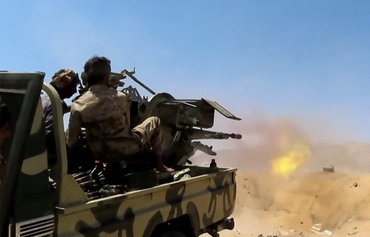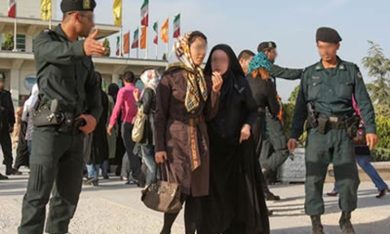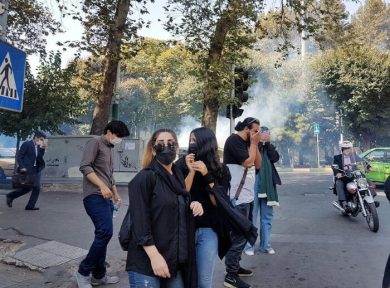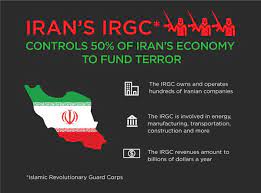The Islamic Revolutionary Guard Corps (IRGC) operates as one of the most powerful and opaque institutions within the Iranian regime. Beyond its military influence, the IRGC maintains a vast financial empire that extends into nearly every sector of Iran’s economy, including oil, construction, telecommunications, banking, and trade. This economic dominance fuels the organization’s ability to suppress dissent, fund regional proxy militias, and carry out international operations.
Targeted economic sanctions—particularly those aimed at the IRGC’s financial networks—have emerged as one of the most effective tools in weakening its power without directly harming the Iranian population. When designed carefully, these sanctions can disrupt illicit revenue streams, limit access to global markets, and pressure the regime by isolating its military and economic arms.
This report examines how targeted sanctions can successfully curb the IRGC’s influence, identifying key sectors, methods of enforcement, and global cooperation necessary for meaningful impact.
1. Understanding the IRGC’s Financial Empire
The IRGC controls hundreds of front companies, foundations, and investment firms, often operating under civilian façades. Key entities include:
• Khatam al-Anbiya Construction Headquarters: The IRGC’s engineering and construction arm, involved in major infrastructure projects.
• Bonyads (Charitable Foundations): Tax-exempt organizations that funnel money to the IRGC while avoiding public oversight.
• Banks and financial institutions: Some directly controlled or heavily influenced by the IRGC, enabling international transactions and money laundering.
The IRGC’s financial reach allows it to circumvent sanctions, finance operations in Iraq, Syria, Lebanon, and Yemen, and suppress domestic opposition with well-funded intelligence and security forces.
2. The Effectiveness of Targeted Sanctions
Unlike broad economic sanctions that hurt ordinary citizens, targeted sanctions aim directly at IRGC-linked institutions and individuals.
Key Outcomes of Sanctions on IRGC Networks:
• Asset Freezing: Seizing IRGC-linked assets abroad limits liquidity and prevents reinvestment.
• Export/Import Restrictions: Targeting dual-use goods and key resources, like oil and construction materials, undercuts revenue generation.
• Banking Restrictions: Cutting off IRGC-affiliated banks from SWIFT and global finance reduces access to international markets.
• Secondary Sanctions: Penalizing third-party countries and companies that do business with IRGC entities increases pressure and isolation.
These measures have previously led to delayed projects, increased internal friction within Iran’s elite, and greater transparency on illicit activities.
3. Case Study: U.S. Sanctions and IRGC Designation
In 2019, the United States designated the IRGC as a Foreign Terrorist Organization (FTO)—a first for any branch of a sovereign nation’s military. This led to:
• Expansion of sanctions against IRGC-affiliated companies, particularly in the construction, oil, and gas sectors.
• Legal action against foreign firms doing business with IRGC-controlled entities.
• Enhanced intelligence sharing with allies to monitor and freeze IRGC-linked transactions.
The move significantly constrained the IRGC’s operations, especially in terms of funding regional proxies like Hezbollah and the Houthis.
4. Sanctions Evasion: How the IRGC Responds
The IRGC has developed sophisticated evasion tactics, including:
• Shell companies and front businesses in countries like China, Turkey, and the UAE.
• Use of cryptocurrencies and informal value transfer systems (e.g., hawala).
• False documentation and shipping networks that conceal cargo origins.
Combating these tactics requires coordinated international efforts, intelligence-sharing, and technological monitoring systems.
5. International Cooperation is Key
No single country can disrupt the IRGC’s financial empire alone. Multilateral sanctions and enforcement mechanisms are essential.
Steps Toward Global Cooperation:
• The EU, UK, and Canada should officially designate the IRGC as a terrorist organization, mirroring the U.S.
• A joint task force to track illicit financial flows and penalize front companies.
• Shared intelligence networks to intercept and investigate IRGC economic activities across borders.
By closing the IRGC’s access to global capital and commerce, the international community can strategically weaken its grip inside Iran and across the Middle East.
6. Sanctions with Smart Design: Avoiding Civilian Harm
To avoid unintended economic harm to Iranian citizens:
• Target sanctions to specific IRGC-controlled sectors rather than essential services like food and medicine.
• Implement humanitarian exemptions that allow legitimate trade for non-military goods.
• Support independent Iranian businesses and civil society groups that do not engage with IRGC entities.
Conclusion
The IRGC’s economic power underpins its military strength, regional adventurism, and internal repression. By enforcing targeted, coordinated, and well-designed sanctions, the global community can disrupt the IRGC’s financial lifelines while minimizing harm to the Iranian people.
Such measures offer a strategic path to contain the IRGC, support Iranian civil society, and advance regional and global security.
Join Our Newsletter!
Stay informed with the latest updates, news, and ways to take action in the fight for justice and global security. Sign up now to get updates delivered straight to your inbox!

